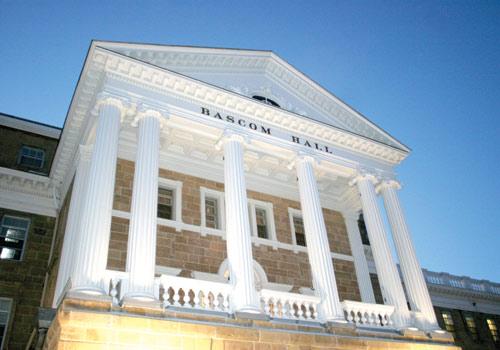Wisconsin Gov. Tony Evers unveiled his proposed biennial budget proposal for the 2023-2025 fiscal period Feb. 15. Included in his proposal was a $305 million increase in funding for the University of Wisconsin System, according to the Office of the Governor.
With state funding, the Wisconsin Tuition Promise Program would launch in the fall of 2023 and would apply to Wisconsin residents attending any of Wisconsin’s public universities other than UW-Madison. It would cover up to four years of tuition and fees for families that earn less than $62,000 annually, according to the tuition promise website.
Similarly to many tuition promise programs, the Wisconsin program would provide “last dollar” support. This means students would receive program funding only after federal and state grant aid is applied, so awards to students would vary, according to the tuition promise website.
Of Wisconsin students that receive federal educational finance assistance in the form of Pell grants, 83% of them do not go to UW-Madison, according to Milwaukee Journal Sentinel.
“Partnering with the legislature on the structure of this program to make it a reality will be a priority, as we believe we share the common goal of addressing workforce challenges,” UW System President Jay Rothman said in an email statement to The Badger Herald.
UW has had a similar program installed since February 2018. Bucky’s Tuition Promise guarantees scholarships and grants to pay for tuition and segregated fees for students with a household income lower than $65,000.
Assembly Speaker Robin Vos said in an interview with The Daily Cardinal that Republicans in the Legislature are unlikely to fulfill the UW System’s request, and suggested that the UW System adopt a program similar to UW’s.
Bucky’s Tuition Promise is not funded with taxpayer dollars, but rather comes from their endowment of $3.9 billion. Comparatively, the UW school with the second-largest endowment is UW-Milwaukee, with an endowment of $148 million.
Vos said in the interview with Daily Cardinal that the tuition promise is not something they will be able to fund at the state level when people are struggling to pay their taxes and other bills.
More than a dozen states have implemented “promise programs” of varying designs. According to PBS, these programs boost enrollment for marginalized students, reduce the number of student loans and make areas more appealing for students to return to in the future.
Educational policy researcher at UW, Taylor Odle said in a statement to PBS that these college programs can be deceiving and may only represent 50% or less of the total cost of getting a college education.
Wisconsin state and federal financial aid for tuition is shrinking, according to the Wisconsin Policy Forum. Between Pell grants and Wisconsin grants, 91.4% of tuition was covered in 2002, compared to 69% in 2021, according to Wisconsin Public Radio.
Editor’s Note: This article was updated to accurately reflect that Vos spoke to The Daily Cardinal, not the Milwaukee Journal Sentinel, about the likelihood of Republicans fulfilling the UW System’s request for the tuition promise program.


